Andrew Walter
Artificial Neural Microcircuits as Building Blocks: Concept and Challenges
Mar 24, 2024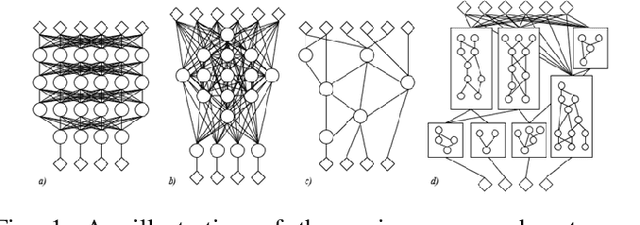
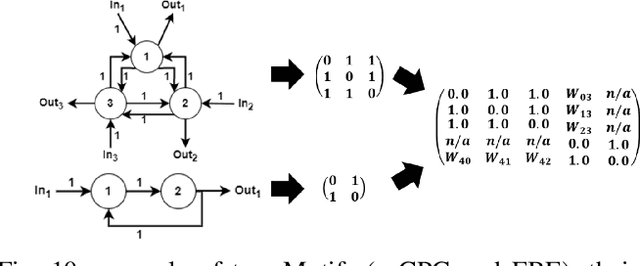
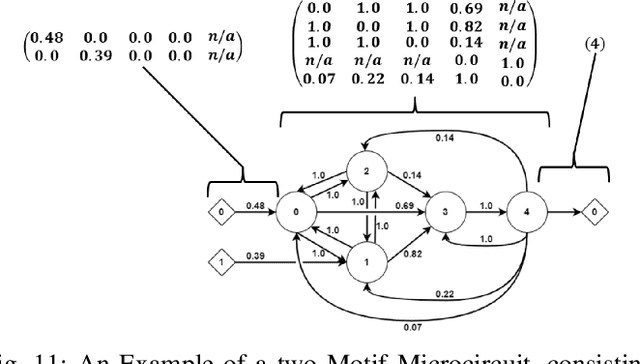
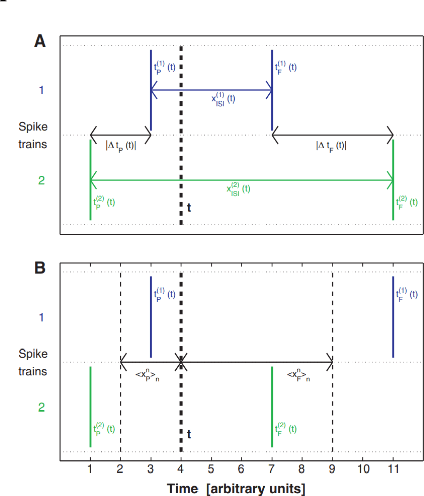
Abstract:Artificial Neural Networks (ANNs) are one of the most widely employed forms of bio-inspired computation. However the current trend is for ANNs to be structurally homogeneous. Furthermore, this structural homogeneity requires the application of complex training and learning tools that produce application specific ANNs, susceptible to pitfalls such as overfitting. In this paper, an new approach is explored, inspired by the role played in biology by Neural Microcircuits, the so called ``fundamental processing elements'' of organic nervous systems. How large neural networks, particularly Spiking Neural Networks (SNNs) can be assembled using Artificial Neural Microcircuits (ANMs), intended as off-the-shelf components, is articulated; the results of initial work to produce a catalogue of such Microcircuits though the use of Novelty Search is shown; followed by efforts to expand upon this initial work, including a discussion of challenges uncovered during these efforts and explorations of methods by which they might be overcome.
A Reasoning Engine for the Gamification of Loop-Invariant Discovery
Sep 02, 2021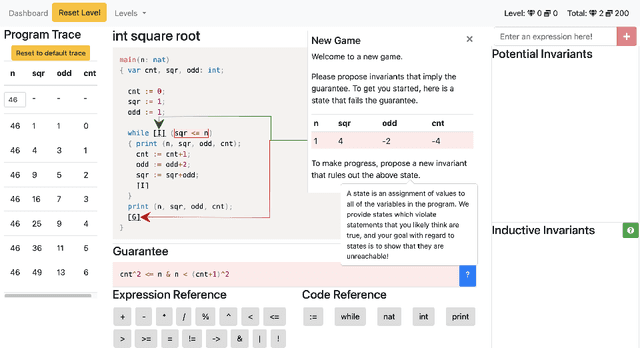
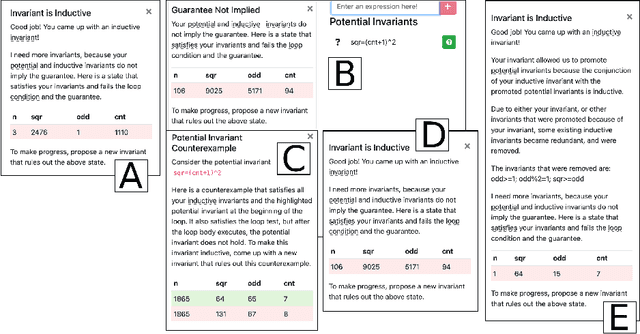
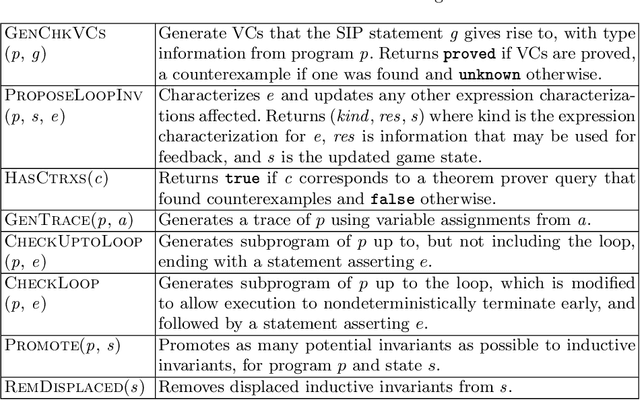
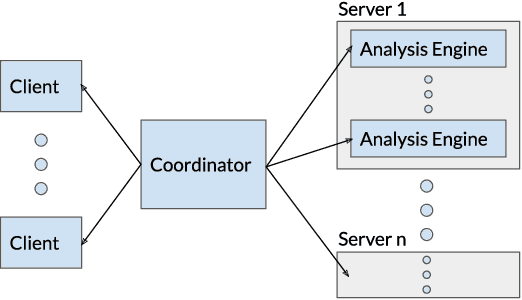
Abstract:We describe the design and implementation of a reasoning engine that facilitates the gamification of loop-invariant discovery. Our reasoning engine enables students, computational agents and regular software engineers with no formal methods expertise to collaboratively prove interesting theorems about simple programs using browser-based, online games. Within an hour, players are able to specify and verify properties of programs that are beyond the capabilities of fully-automated tools. The hour limit includes the time for setting up the system, completing a short tutorial explaining game play and reasoning about simple imperative programs. Players are never required to understand formal proofs; they only provide insights by proposing invariants. The reasoning engine is responsible for managing and evaluating the proposed invariants, as well as generating actionable feedback.
 Add to Chrome
Add to Chrome Add to Firefox
Add to Firefox Add to Edge
Add to Edge